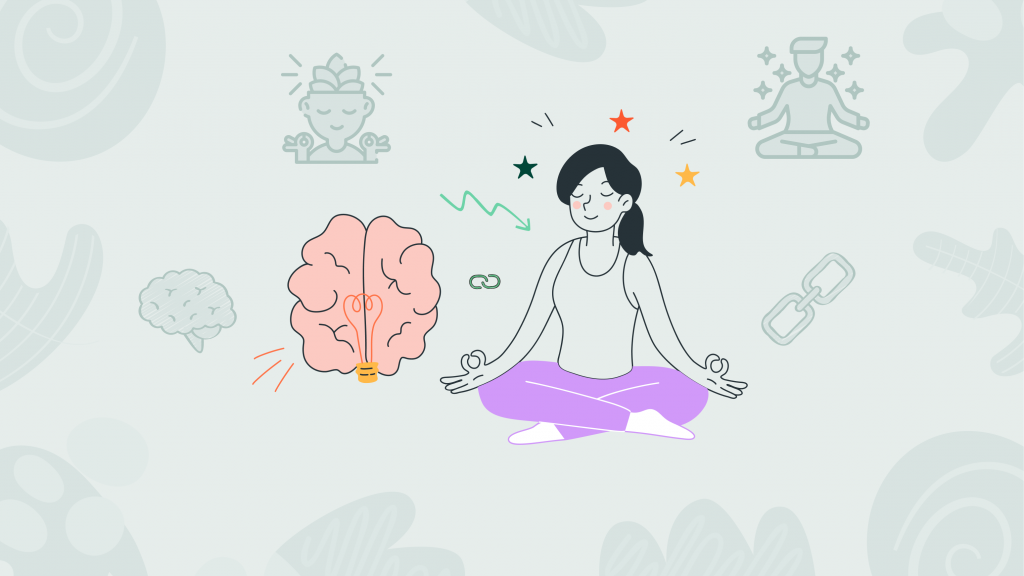Hunger or Habit?
Ever caught yourself doing the kitchen shuffle? You know, when you find yourself standing in front of the fridge or pantry, giving it the good old stare-down, and then snagging a snack, even though you just ate?
Oh, it happens to the best of us, all over the world, muddying the waters between real hunger and plain old boredom. It’s like, are we actually hungry, or is it just the boredom monster nudging us to nibble on something, anything?
And let’s be honest, who hasn’t grabbed a bite out of boredom, stress, or a whirlwind of other emotions?
It’s not always about feeding our physical hunger. Sometimes, it’s more about feeding our feelings or killing time. Food becomes this go-to response, almost like a reflex, to different triggers around us or emotions bubbling up inside.
The Neurological Nibble
Understanding the battle between hunger and boredom starts with the brain, the epicenter of our eating behaviors. When we eat, our brain releases dopamine, a “feel-good” neurotransmitter, rewarding us and reinforcing the habit of eating as a pleasurable activity. This dopamine rush can be so satisfying that our brains often crave it in times of boredom or stress, leading to unnecessary snacking.
Furthermore, the hippocampus, involved in memory, connects food with particular feelings or situations, making the act of eating a go-to response to specific emotional states. In essence, we’re not just feeding our stomachs but also trying to satiate an emotional or psychological hunger.
But wait, there’s more to this snack story! Our environment and daily routines play a huge role too. Visual cues, like seeing snacks on the counter, or situational cues, such as eating while watching TV, can trigger our eating habits without us even being truly hungry.
It’s like our brain has this map of habits formed over time, linking places, times, and even emotions with eating. So, even when our body doesn’t need food, our brain might think, “Hey, it’s movie time, let’s grab some popcorn!” This shows how intertwined our habits and environmental cues are with our neural pathways, driving us to eat out of routine rather than necessity.
Steps From Mindless Munching to Mindful Eating
To break the cycle of boredom-induced eating, dive into mindful eating practices. Here’s how you can make it actionable:
- Start a Food-Mood Journal: Keep track of what you eat, when, and how you feel before and after eating. This will help you identify patterns and triggers for mindless snacking.
- Eat Without Distractions: When it’s time to eat, just eat. Turn off the TV, put down your phone, and focus solely on your meal. This will help you savor each bite and recognize your body’s satiety signals more effectively.
- Slow Down: Take your time with each bite, chewing thoroughly and pausing between bites. This allows your body to register fullness and can prevent overeating.
- Check-In with Yourself: Regularly pause during snacking or meals to ask, “Am I still hungry, or am I eating out of habit?” This moment of mindfulness can stop automatic eating in its tracks.
- Seek Fulfilling Activities: Instead of turning to food when you’re bored or emotional, find activities that nourish your spirit or engage your mind. Whether it’s a brisk walk, a creative hobby, or a relaxing bath, do something that makes you feel good without eating.
- Practice Gratitude for Your Food: Before you eat, take a moment to express gratitude for your meal. This can help you appreciate the food in front of you and eat with intention and attention.
By incorporating these practices into your daily routine, you’ll not only curb mindless munching but also develop a healthier, more conscious relationship with food.
Subscribe to newsletter
Get your Gut Health Starter Guide right now.
Elevate your Tuesdays with practical, science-backed wisdom propelling you forward on your gut health journey.

A Taste of Success Through Healthy Habits
James, a 35-year-old accountant, often found himself mindlessly snacking during the long hours at his desk, mistaking boredom for hunger. The turning point came when he stumbled upon the concept of mindful eating. Curious, he decided to give it a try, embarking on a journey that would significantly alter his relationship with food and his overall health.
He started by pausing before each snack, asking himself if he was truly hungry. More often than not, he realized he wasn’t. This simple act of mindfulness helped him become more attuned to his body’s actual needs.
Gradually, he replaced his snack breaks with short walks or stretching sessions, activities that not only distracted him from unnecessary eating but also boosted his energy and mood.
James shares, “Before, I’d reach for chips or sweets without thinking, especially when I was bored or stressed. Starting mindful eating was a game-changer. I began to notice when I was genuinely hungry and when I was just eating out of habit.
Swapping snacks for a quick walk or even just standing up to stretch during breaks made a huge difference. I feel more alive, more in tune with my body, and the bonus is, I’ve lost some weight without even trying.”
This shift, although small at first, led to substantial changes in James’s life. He noticed he was more energized, less sluggish, and the weight started to drop off almost effortlessly. But beyond these physical improvements, the biggest change was mental and emotional — he felt more in control of his eating habits and, by extension, his health and well-being.
“In hindsight,” James reflects, “I realize I was often just bored or seeking an emotional pick-me-up through food. Now, I find healthier ways to cope, like going for a walk or doing a quick meditation. It’s not just about eating less or losing weight; it’s about being mindful of why I’m eating and choosing actions that support my health and happiness.”
Deciphering the true nature of our eating habits — distinguishing hunger from boredom or emotional eating — is a journey of self-awareness and mindfulness.
By understanding the neurochemical dance in our brains and consciously choosing how we respond to its cues, we can transform a mindless habit into a mindful practice, leading to healthier choices and improved well-being.


















